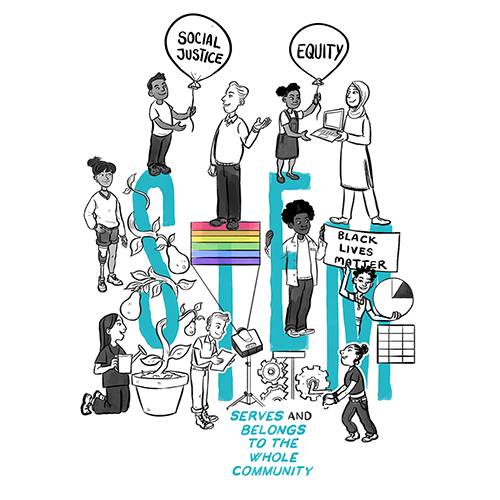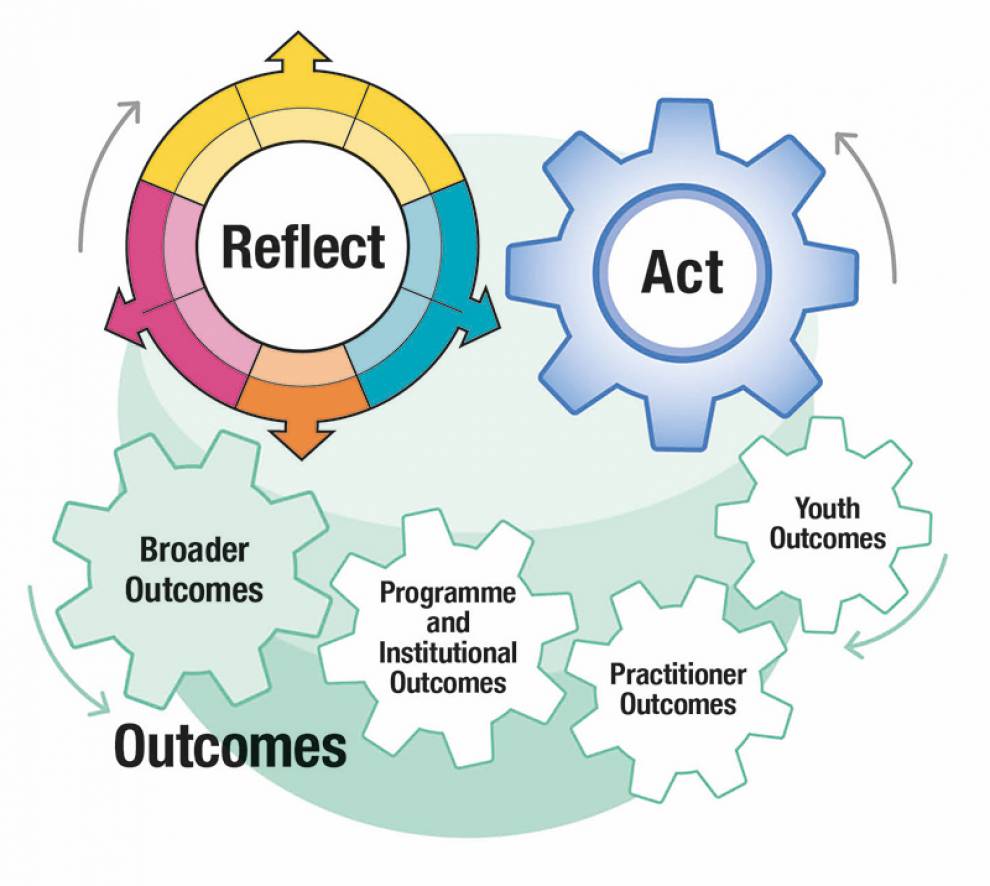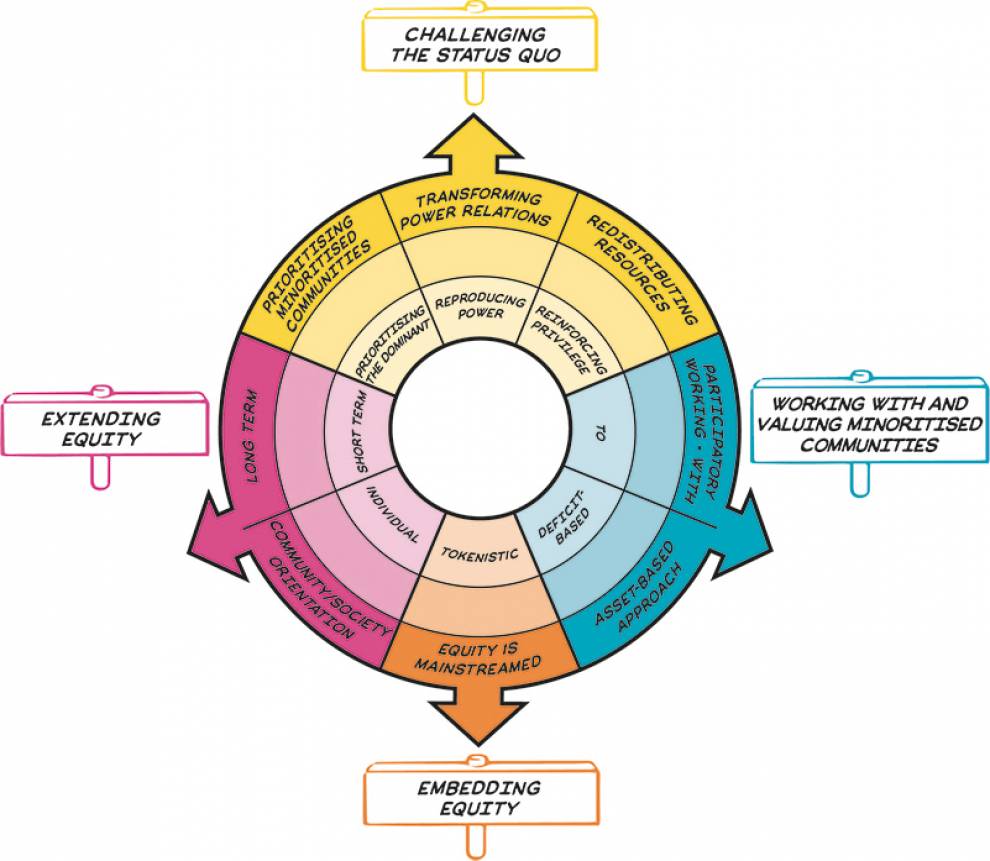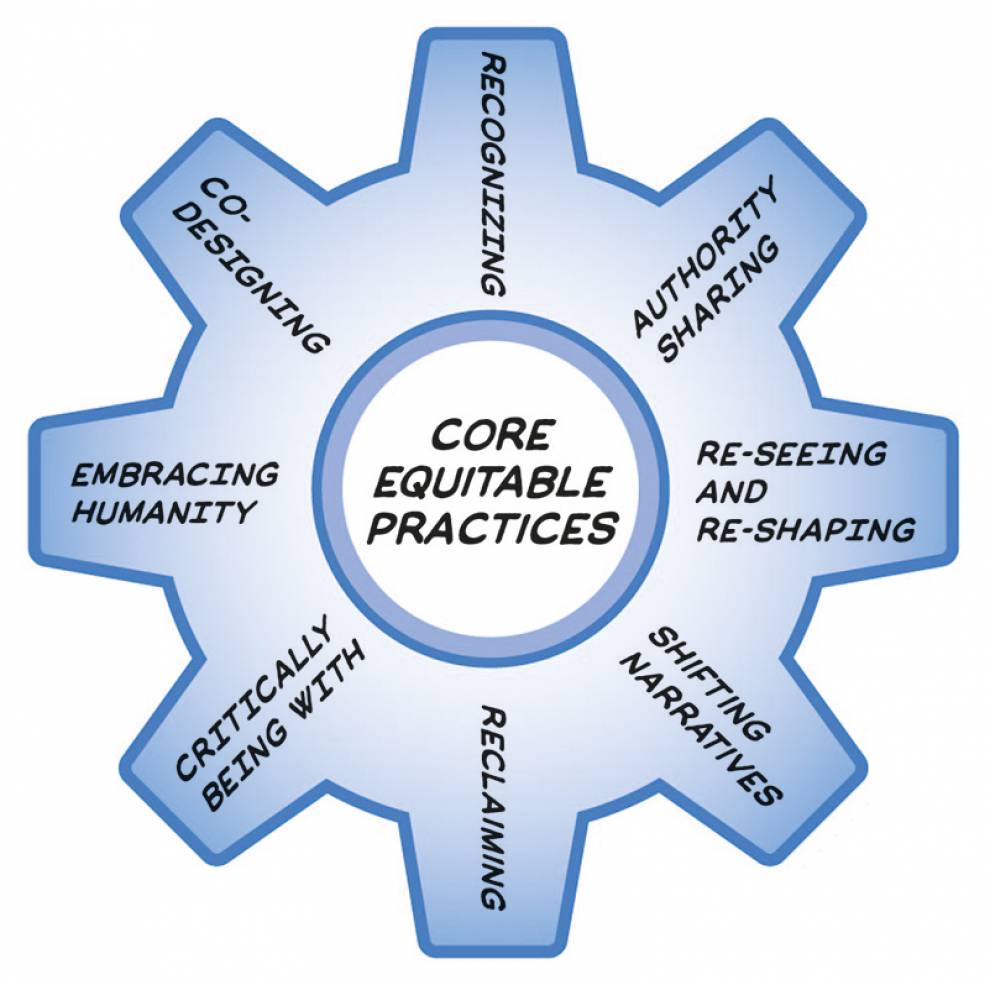This project ran from 2017 to 2022 and addressed fundamental equity issues in informal Science, Technology, Engineering and Mathematics (STEM) learning.

UK Project Director: Professor Louise Archer
This project brought together researchers and practitioners to focus on the experiences, practices and tools that would support equitable youth pathways into STEM.
Youth Equity + STEM (YESTEM) was a five-year Science Learning+ Partnership project (2017-2022) funded by the National Science Foundation (NSF), Wellcome, and the Economic and Social Research Council (ESRC).
- Aims
The major goal of this partnership is getting practitioners and researchers - through working with youth through design-based implementation research, survey and critical ethnography - to develop new understandings of how and under what conditions they participate in informal STEM learning (ISL) over time and across settings, and how they may connect these experiences towards pathways into STEM.
- Research agenda
The YESTEM project responds to three challenges at the intersections of ISL research and practice in the United Kingdom and United States:
- lack of shared understanding of how youth from historically underrepresented backgrounds perceive and experience ISL opportunities across national contexts, and the practices and tools needed to support empowered movement through ISL
- limited shared understanding and evidence of core high-leverage practices that support such youth in progressing within and across ISL
- limited understanding of how ISL might be equitable and transformative for such youth seeking to develop their own pathways into and through STEM.
- Methodology
Working across conceptual frameworks and ISL settings (e.g. science centres, community groups, zoos) and universities in four urban contexts in two different nations, the partnership will produce a coherent knowledge base that strengthens and expands research and practice partnerships, builds capacity towards transformative research and development, and develops new models and tools in support of equitable pathways into STEM at a global level.
Outcomes
The project will result in
- new understandings of ISL pathways that are equitable and transformative for youth from historically underrepresented backgrounds
- a set of high leverage practices and tools that support equitable and transformative informal science learning pathways (and the agency youth need to make their way through them)
- a strengthened and increased professional capacity to broaden participation among youth from historically underrepresented backgrounds in STEM through informal science learning.
- UK team
Principal Investigator
Co-investigator
Researchers
- Dr Spela Godec
- Dr Ada Mau
- Dr Effrosyni Nomikou
- Dr Uma Patel
- Research-practice partnership
The project builds on a previous funded partnership and will be carried out by research and practice partnerships in four cities: London & Bristol, UK and Lansing, Michigan & Portland, Oregon, US, involving university researchers from University College London, University of Michigan, Oregon State University / Institute for Learning Innovation, and practitioners in informal STEM learning settings, such as science centres, zoo and community-based organisations.
University Partners
- University of Michigan - US PI, Professor Angela Calabrese Barton
- Institute for Learning Innovation/Oregon State University - CI, Professor Lynn Dierking
UK ISL Partners
US ISL Partners
- Publications
Research papers linked to Youth Equity + STEM
- Calabrese Barton, A., Greenberg, D., Kim, W., Brien, S., Roby, R., Blazer, M., Turner, C. & Archer, L. (in print). Disruptive Moments as Opportunities towards Justice-Oriented Pedagogical Practice in Informal Science Learning. Science Education.
- Archer, L., Calabrese Barton, A., Dawson, E., Godec, S., Mau, A. & Patel, U. (in print). Fun moments or consequential experiences? A model for conceptualising and researching equitable youth outcomes from informal STEM learning. Cultural Studies of Science Education.
- Godec, S., Archer, L. and Dawson, E. (2021). Interested but not Being Served: Mapping Young People’s Participation in Informal STEM Education. Research Papers in Education.
- Archer, L., Godec, S., Calabrese Barton, A., Dawson, E., Mau, A. and Patel, U. (2020). Changing the field: A Bourdieusian analysis of educational practices that support equitable outcomes among minoritized youth on two informal science learning programmes. Science Education (In press).
- Godec, S., Patel, U., Archer, L. and Dawson, E. (2020). Young people's tech identity performances: why materiality matters. International Journal of STEM Education, 7 (51).
Research briefs from an earlier planning phase, Youth Access & Equity in ISL: Developing a Research and Practice Agenda (2015-2016)
- Equity in informal science learning: a research and practice brief (PDF, 2.2MB) - this briefing document summarises the discussions, data and findings relating to equity and access work in informal science contexts that were conducted as part of phase one project funding.
- Pathways in informal science learning: a research and practice brief (PDF, 2.4MB) - this briefing document summarises the discussions, data and findings relating to pathways within and across informal science contexts, in particular relating to youth and equity that were conducted as part of phase one project funding.
- Infographic: Youth equity pathways in informal science learning (PDF, 3.2MB) - the key figures and findings from the project are presented in this infographic, including data from the survey and workshops that were conducted as part of phase one project funding.
- Research and practice agenda (PDF, 2.6MB) - we set out the key questions and themes for future equity and access work in this agenda, as identified through project research and activities that were conducted as part of phase one project funding.
- Resources and tools
YESTEM model

The Yestem model
The YESTEM model shows the interconnection between the “Reflect” (The Equity Compass), “Act” (a set of eight Core Equitable Practices) and the Outcomes components (including Youth Outcomes, Practitioner Outcomes, Programme and Institutional Outcomes and Broader Outcomes).
The Equity Compass
The Equity Compass helps users to adopt a social justice mindset when developing and reflecting on their policy and/or practice. It prompts users to consider multiple dimensions of equity, as represented by the eight dimensions.

The Equity Compass
The "Equity Compass” graphic shows eight dimensions of equity, grouped into four overarching areas. The eight dimensions of equity are written in the outer layer. The inner layer indicates inequitable or weak practice.
“Challenging the status quo” area includes three dimensions of equity: “prioritising minoritised communities” (with inner layer “prioritising the dominant”), “transforming power relations” (with inner layer “reproducing power”), and “redistributing resources” (with inner layer “reinforcing privilege”).
“Working with and valuing minoritised communities” area includes two dimensions of equity: “participatory working – with” (with inner layer “to”) and “asset-based approach” (with inner layer “deficit-based”).
“Embedding equity” area includes one dimension of equity: “equity is mainstreamed” (with inner layer “tokenistic”). “Extending Equity” area includes two dimensions of equity: “community/society orientation” (with inner layer “individual”) and “long term” (with inner layer “short term”).
- The Equity Compass: A tool for supporting socially just practice - Funders Edition
- Insight 1: The Equity Compass: A tool for supporting socially just practice - Informal STEM learning edition (PDF, 1MB)
- The Equity Compass: A tool for supporting socially just practice – Teacher Edition (PDF,1.1MB)
- The Equity Compass: A tool for supporting socially just practice – School Leaders and Governors Edition (PDF, 0.6MB)
- The Equity Compass: A tool for supporting socially just practice - STEM Ambassadors edition (PDF, 1MB)
- Editable Equity Compass worksheet (PDF, 0.04MB)
- Fortune teller – for colour printing (PDF, 0.2MB)
- Fortune teller – for black-and-white printing (PDF, 0.1MB)
MediaCentral Widget Placeholderhttps://mediacentral.ucl.ac.uk/Player/8j4daJ4b Our practice partners reflected on the four Equity Compass areas and how equitable practice has been developed within their settings - more films to follow.
MediaCentral Widget Placeholderhttps://mediacentral.ucl.ac.uk/Player/38047JB2 MediaCentral Widget Placeholderhttps://mediacentral.ucl.ac.uk/Player/FHJDe1ij MediaCentral Widget Placeholderhttps://mediacentral.ucl.ac.uk/Player/g2eC34AD MediaCentral Widget Placeholderhttps://mediacentral.ucl.ac.uk/Player/j1953I10 Core Equitable Practices
These are pedagogical practices that support youth’s learning and engagement in STEM in empowering ways. When educators engage in Core Equitable Practices, they take the stance that educators and youth are co-learners, co-disruptors and co-creators of a more just world with and in STEM.

YESTEM Core Equitable Practices
“The Core Equitable Practices” graphic shows eight practices: Authority sharing, Re-seeing and re-shaping, Shifting narratives, Reclaiming, Critically being with, Embracing humanity, Co-resigning and Recognising.
- Insight 2: Core Equitable Practices (PDF, 0.6MB)
- Insight 2.1: Recognising (PDF, 0.5MB)
- Insight 2.2: Re-seeing and Re-shaping (PDF, 0.6MB)
- Insight 2.3: Core Equitable Practices (PDF, 0.6MB)
- Insight 2.4: Reclaiming (PDF, 0.5MB)
- Insight 2.5: Shifting Narratives (PDF, 0.5MB)
- Insight 2.6: Critically Being With (PDF, 0.5MB)
- Insight 2.7: Embracing Humanity (PDF, 0.4MB)
- Insight 2.8: Authority Sharing (PDF, 1.1MB)
Equitable outcomes
- Insight 3.1: Equitable Youth Outcomes Model for informal STEM learning (PDF, 2.1MB)
Accessible and alternative language versions
• The Equity Compass for informal STEM learning (accessible)
• The Equity Compass for teachers (accessible)
• The Equity Compass for school leaders and governors (accessible)
• The Equity Compass for STEM Ambassadors (accessible)
• The Equity Compass for funders (accessible)
• Equitable Youth Outcomes Model (accessible)
• How to set up and run an equitable youth board (accessible)We have a number of resources translated into other languages. Please get if you’d like to discuss translating any of our other material.
Email: ioe.stemparticipationsocialjustice@ucl.ac.uk- Events and training
- Free online course on Future Learn - Equity in Informal STEM Learning: Using the Equity Compass
- Youth Equity + STEM (YESTEM) - informal STEM learning for social justice
- A recording from the YESTEM Dissemination Event held in October 2021.
MediaCentral Widget Placeholderhttps://mediacentral.ucl.ac.uk/Player/H5AAjj6f
Blog: Youth Equity + STEM (YESTEM)
 Close
Close

